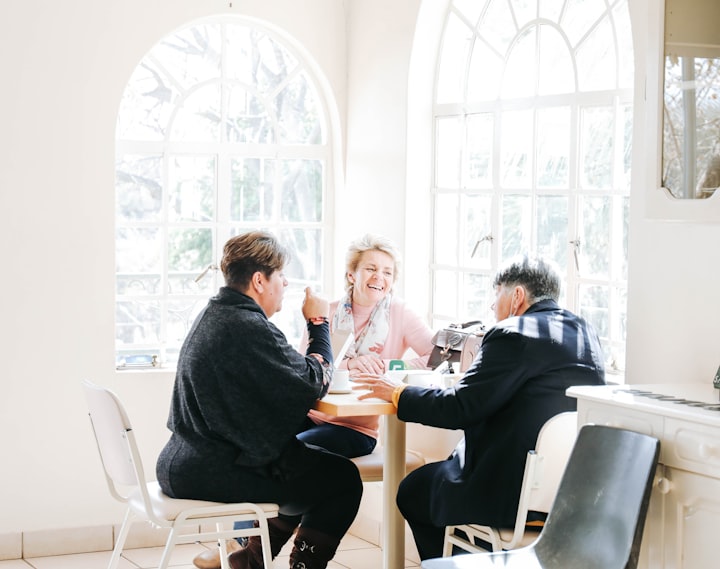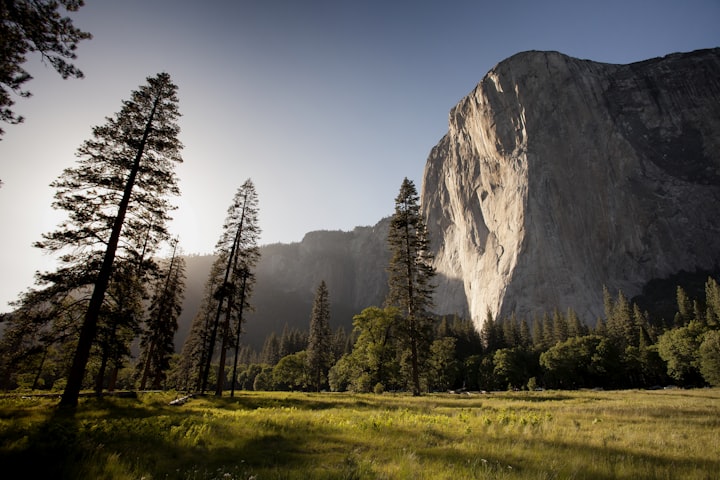Navigating Uncomfortable Truths
A Journey of Friendship and Identity

The events surrounding the Black Lives Matter uprisings of 2020 were seismic shifts in the societal landscape, reverberating not only through institutions and communities but also deeply within individuals, including myself. These uprisings served as a clarion call, exposing the entrenched systemic racism and injustices faced by the Black community in stark and undeniable terms.
For many, myself included, witnessing the relentless stream of injustices inflicted upon Black individuals was a visceral experience that shook the very foundation of our understanding of society. It was a wake-up call to the harsh realities of systemic oppression, police brutality, and racial inequality that had been perpetuated for generations. The sheer magnitude and frequency of these injustices forced me to confront uncomfortable truths about the world we live in and my role within it.
As I bore witness to the names and faces of countless Black lives cut short by violence and bigotry, I found myself grappling with a profound sense of grief, anger, and disillusionment. It was impossible to ignore the glaring disparities in how Black lives were valued and protected compared to their white counterparts. The stark juxtaposition of peaceful protests met with a militarized police force highlighted the deep-seated racism embedded within law enforcement and society at large.
In the face of such egregious injustices, I was compelled to reevaluate not only my understanding of systemic racism but also my own identity and relationships. As a person of color, the uprisings forced me to confront how I had internalized societal messages about race and assimilation. I was confronted with the realization that my identity as a Black individual was not something that could be compartmentalized or divorced from the larger struggles faced by my community.
Moreover, the uprisings prompted me to critically examine my relationships with others, particularly those who may not have shared my same level of awareness or commitment to racial justice. It became increasingly clear that remaining silent or complacent in the face of injustice was no longer an option. The events of 2020 demanded accountability, allyship, and a willingness to engage in difficult conversations about race and privilege.
In essence, the Black Lives Matter uprisings of 2020 catalyzed profound introspection and growth, both on a personal and societal level. They forced individuals, myself included, to confront uncomfortable truths about the pervasive nature of racism and inequality, challenging us to reevaluate our beliefs, actions, and relationships. While the journey towards racial justice is far from over, the events of 2020 marked a pivotal moment in history—a moment that sparked a collective reckoning and a renewed commitment to dismantling systems of oppression and building a more equitable future for all.
For years, I found myself locked in a struggle with the comments and perceptions surrounding my Blackness, a battle that often left me feeling isolated and disconnected from others who shared my identity. The weight of societal stereotypes and expectations bore down on me, shaping my interactions and influencing how I navigated the world as a Black individual. It was a constant internal battle, one that left me questioning my place within my community and society at large.
However, the events that unfolded during the Black Lives Matter uprisings of 2020 catalyzed a profound shift in my perspective. As I bore witness to the unrelenting tragedies faced by countless Black individuals at the hands of systemic racism, something within me stirred. The faces and names of those victimized became seared into my consciousness, serving as a stark reminder of the injustices that pervaded every aspect of our society.
In the face of such profound suffering and loss, I felt a fire ignite within me—a fire fueled by a newfound sense of purpose and determination. It was a pivotal moment of awakening, a realization that I could no longer allow others, even those within my community, to dictate the worth and validity of my Blackness. I reclaimed my identity with unwavering pride, recognizing that my Blackness was not something to be diminished or diluted by the perceptions and biases of others.
In that moment of clarity, I embraced my Blackness in all its complexities and nuances. I refused to allow the limitations imposed by society to define who I was or what I could achieve. Instead, I embraced my heritage, my culture, and my history with a sense of reverence and gratitude.
No longer would I allow myself to be boxed in by the narrow confines of societal expectations? I understood that my Blackness was a source of strength—a testament to resilience, perseverance, and the enduring spirit of a community that had faced adversity time and time again.
Through reclaiming my Blackness, I found liberation—a sense of empowerment that transcended the barriers of race and ethnicity. It was a journey of self-discovery and self-affirmation, one that allowed me to stand tall and unapologetic in my truth.
In the end, I realized that true liberation comes from within—from embracing every aspect of who we are, unapologetically and without reservation. And in reclaiming my Blackness, I found a sense of freedom that no one, not even fellow Black individuals, could take away from me.
As I embraced this newfound strength and confidence in my identity, I soon encountered another daunting challenge—one that required me to step far beyond the boundaries of my comfort zone. This challenge lay in confronting uncomfortable truths within my closest relationships.
For too long, I had navigated these relationships with a sense of caution, tiptoeing around topics that were deemed too sensitive or controversial. However, the events of 2020 forced me to confront the harsh reality that silence and avoidance only perpetuated the status quo of systemic racism and inequality. It became increasingly clear that true growth and progress could only be achieved through open and honest dialogue, even if it meant having difficult conversations with those I held dear.
Stepping out of my comfort zone meant risking discomfort and confrontation to address issues that had long been swept under the rug. It meant challenging the attitudes and beliefs of friends and family members, even when it felt easier to remain silent. But I understood that true allyship and solidarity required more than just passive support—it demanded active engagement and a willingness to confront the uncomfortable truths that lay at the heart of systemic injustice.
And so, with a deep breath and a resolve born from conviction, I embarked on the journey of confronting these uncomfortable truths within my closest relationships. It was a journey fraught with uncertainty and trepidation, as I grappled with the fear of rejection and the possibility of irreparable damage to cherished connections.
But with each conversation, I discovered a profound sense of liberation—a freedom that came from speaking my truth and standing firm in my convictions. I found that my relationships were strengthened, not weakened, by our willingness to engage in difficult conversations and confront uncomfortable realities together. And while the process was not always easy, it was undeniably necessary for growth and progress to occur.
In the end, stepping out of my comfort zone to confront uncomfortable truths within my closest relationships was a transformative experience—one that challenged me to reassess my priorities, confront my own biases, and deepen my understanding of allyship and solidarity. It was a reminder that true change begins at home, within the confines of our most intimate connections, and that it is only by confronting the uncomfortable truths that we can hope to build a more just and equitable world for all.
Earlier this year, I found myself at a crossroads, grappling with the decision to speak out about the discrimination and racial microaggressions I had endured in the workplace. It was a harrowing experience that left indelible scars on my psyche, yet the fear of reprisal and uncertainty about how my closest friend, Cory, would react stifled my voice for far too long.
The weight of silence became increasingly unbearable as I carried the burden of my experiences alone, haunted by the pervasive fear of retaliation and the potential consequences of speaking out. But as the days turned into weeks and the weeks into months, the toll of suppressing my truth became too heavy to bear. I knew that I could no longer remain silent in the face of injustice, even if it meant risking everything I held dear.
Summoning every ounce of courage within me, I decided to break my silence and confront the discrimination and racial microaggressions that had plagued me for so long. It was a moment of profound vulnerability, as I laid bare my experiences and exposed the raw wounds that had festered beneath the surface for far too long.
But even as I spoke my truth, the specter of uncertainty loomed large, casting a shadow of doubt over the potential repercussions of my actions. Would I face retaliation from my employers? Would I be ostracized by my colleagues? And perhaps most daunting of all, how would Cory, my closest friend and confidant, react to my revelations?
The fear of rejection and abandonment gnawed at me, threatening to overshadow the sense of liberation that came from finally breaking my silence. But deep down, I knew that I could no longer allow fear to dictate the trajectory of my life. I had to speak my truth, regardless of the consequences, and trust that those who truly cared for me would stand by my side.
In the end, while our friendship may have undergone irrevocable changes, the lessons learned will endure as a testament to the power of resilience and self-discovery. Through the trials and tribulations we faced together, we emerged stronger, wiser, and more deeply connected than ever before. And through this shared journey of growth and transformation, we come to understand the true beauty and strength of the human spirit.





Comments
There are no comments for this story
Be the first to respond and start the conversation.